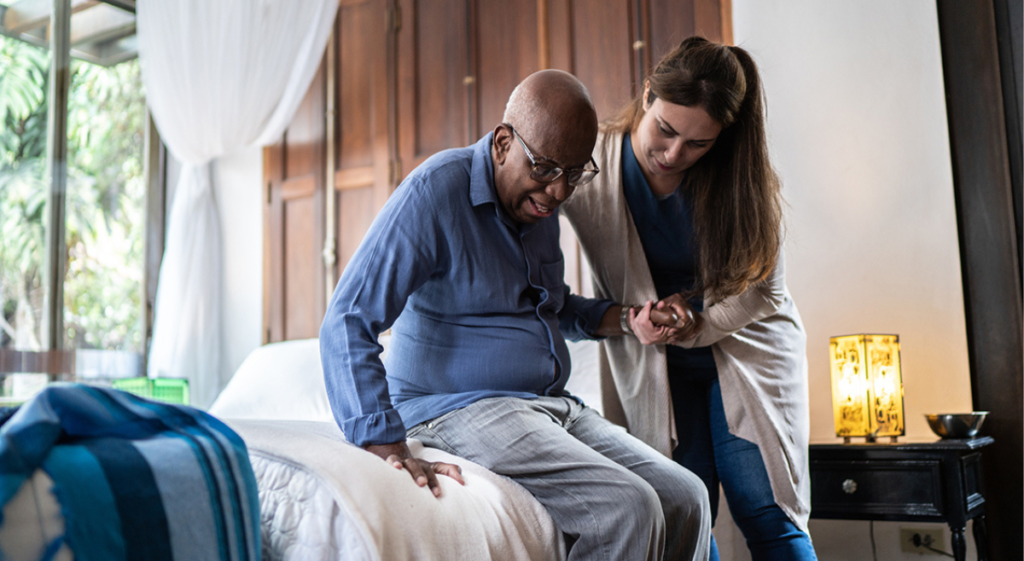Palliative care is a specialized form of medical care that is intended to provide comfort and support to individuals who are facing terminal illnesses. Unfortunately, many individuals do not receive palliative care until very late in their illness, often only in the last days or weeks of their life. Starting palliative care at home sooner can improve the quality of life for patients and their families.
Benefits of Palliative Care at Home
1. Symptom Management
For patients with terminal illnesses, physical symptoms can be overwhelming and greatly affect their quality of life. Palliative care is designed to alleviate these physical symptoms and provide emotional and spiritual support to both the patient and their family. By starting palliative care sooner, patients can receive symptom management earlier in their illness, which can significantly improve their quality of life. The palliative care team can help manage pain, nausea, and other symptoms that can make daily life more difficult. Palliative care also provides emotional and spiritual support to both the patient and their family, which can help reduce stress and anxiety.
2. Support and Education
Facing a terminal illness can be overwhelming for both the patient and their family. The palliative care team can help patients and their families better understand the disease process and what to expect in the coming weeks and months. Palliative professionals are trained to provide education and support to help families navigate the many challenges associated with end-of-life care. By starting palliative care earlier in the illness, patients and their families have more time to prepare for what is to come, which can reduce stress and improve their overall quality of life.
3. More Time Together
Starting in-home palliative care sooner can also help patients and their families avoid unnecessary hospitalizations and invasive medical procedures. For many terminal illnesses, aggressive medical interventions are often no longer helpful and can cause additional discomfort and stress for the patient. Palliative care provides an alternative approach that focuses on comfort and quality of life, rather than curative treatment. By starting palliative sooner, patients and their families can avoid these unnecessary medical interventions and instead focus on making the most of the time they have left.
4. Psychosocial Support
Home palliative care services offer not just medical support but also psychosocial support to patients and their families. A terminal illness can take an emotional toll on patients and their loved ones, causing anxiety, depression, and feelings of hopelessness. Palliative care providers are trained to address these emotional and psychological issues and offer counseling to both patients and their families. They can also provide spiritual support and help families connect with their religious or spiritual communities.

Additionally, palliative care providers can offer respite care to family caregivers, allowing them to take a break and care for themselves. Family caregivers often take on a significant burden in caring for their loved ones, and end-of-life care at home can help alleviate some of this burden.
5. Cost-Effective Care
Palliative care at home is often more cost-effective than hospital-based care. By avoiding unnecessary hospitalizations and invasive procedures, patients and their families can avoid the high costs associated with these interventions. Additionally, palliative care providers can offer terminal illness care at home that is less expensive than hospital-based care. This can help alleviate some of the financial burden associated with end-of-life care, allowing families to focus on spending time together.
6. Better End-of-Life Experience
Ultimately, hospice care at home can help provide a better end-of-life experience for patients and their families. By focusing on comfort and quality of life, rather than curative treatment, palliative care providers can help patients and their families make the most of the time they have left together. Palliative care can also help ensure that patients are able to die with dignity and without unnecessary suffering. By starting palliative care sooner in the illness, patients and their families can have more time to plan for what is to come and ensure that their wishes are respected.
Conclusion
Palliative care at home can significantly improve the quality of life for patients and their families facing a terminal illness. By starting palliative care sooner, patients can receive symptom management, education and support, and psychosocial support earlier in the illness. Palliative care can also help patients and their families avoid unnecessary hospitalizations and invasive procedures, and provide a more cost-effective approach to end-of-life care. Ultimately, comfort care at home can help provide a better end-of-life experience for patients and their families, allowing them to focus on spending meaningful time together in comfort and dignity.
Frequently Asked Questions
1. How can palliative care at home help manage pain and symptoms?
Palliative care at home can help manage pain and symptoms through the use of various interventions such as medication management, physical therapy, counseling, and other treatments that address the physical, emotional, and spiritual needs of the patient.
2. How do I find a palliative care provider for home care?
You can ask your doctor for a referral to a palliative care provider or search for local hospice and palliative care organizations. Medicare’s Hospice Compare website and the National Hospice and Palliative Care Organization’s provider directory are also useful resources.
3. Can palliative care at home be provided 24/7?
Yes, palliative care at home can be provided 24/7. Hospice agencies often have nurses and other healthcare professionals on call around the clock to provide support and care to patients and their families. Some hospice agencies also offer continuous care, which involves having a nurse or other healthcare professional present in the home for a period of time to manage symptoms and provide support.
We are India’s first comprehensive continuum care provider. We provide multidisciplinary out of hospital care to acute and post-acute and chronically ill patients at our critical care facilities and your home.


